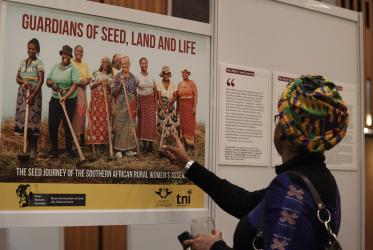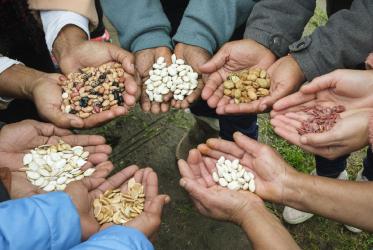A reflection by Dr Manoj Kurian, coordinator of the WCC Ecumenical Advocacy Alliance, lamented the fact that one in 10 people goes to sleep at night hungry.
“It is primarily a crisis driven by conflict, climate change, and chronic inequality,” he said. “To address the root causes, we must address the injustices and inequities that plague our societies.”
Kurian also discussed fasting—one of the spiritual disciplines in the Christian faith that is no longer practised universally. “Spiritual disciplines are practices described in the Holy Scriptures that contribute to spiritual growth,” he explained. “These help us develop the discipline and habits to ultimately know God and God's purposes.”
Fasting is abstaining from eating or limiting one's food to very basic or frugal amounts for a period of time.
“The purpose is twofold: to make oneself humble, to experience vulnerability and total dependence on God, and to give further clarity, sharpness, and meaning to our prayers and worship,” he said. “The second is to evoke empathy with those who are hungry and in need, strengthen solidarity, and motivate us to share what we have with those who lack resources.”
We also fast to assist in seeking guidance and direction from God, Kurian continued. “We cannot limit our understanding and relationship with God—only fixing our gaze on the heavens above, oblivious to the cries of God's creation and image-bearers here on earth,” he said. “When was the last time we felt the pangs of hunger?”
Kurian asked people to recall meals that touched or changed their lives. “With whom could we share food?” he asked, then suggested: “We could reach out to people we have never met for a meal.”






